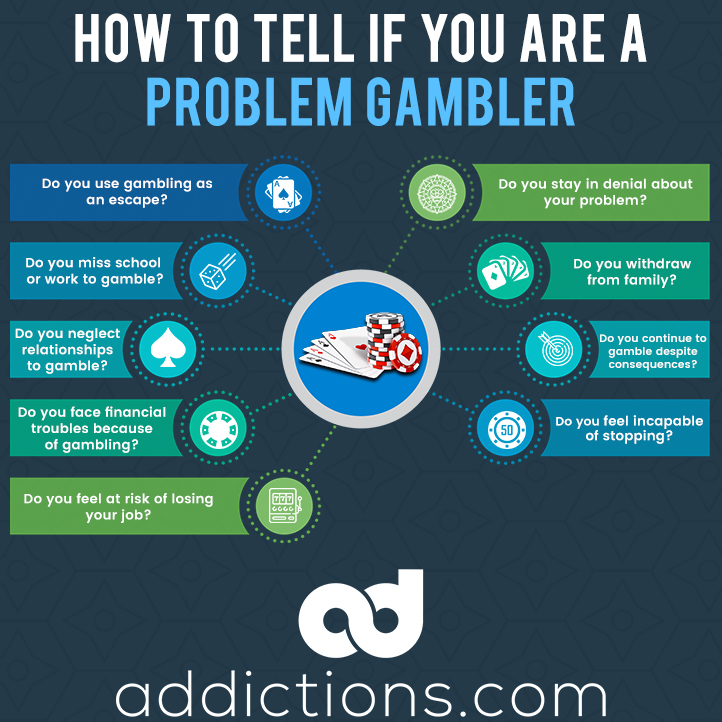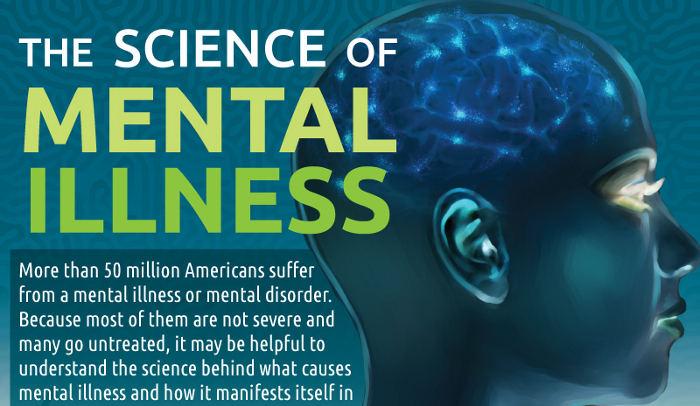Types Of Gambling Disorders
Last updated: 08/5/2019
Author: Addictions.com Medical Review
Reading Time: 3minutes
Even without the physical triggers so commonly associated with drug addiction, gambling disorders can wreak just as much havoc in a person’s life. While drug addiction works as a substance-based disorder, gambling addictions have more to do with a lack of impulse control.
Gambling disorders. She shows how various types of imaging are used to investigate the role that the reward system, reactivity to cues and impulsivity play in pathological gambling (van Holst et al., 2010). Catharine Winstanley summarizes an animal research study in “The Rat.
- Gambling addiction, also known as compulsive gambling, may be a type of impulse-control disorder. Compulsive gamblers keep gambling whether they’re up or down, broke or flush, happy or depressed.
- Gambling disorder is a behavioral addiction diagnosis introduced in the Diagnostic and Statistical Manual of Mental Disorders, Fifth edition (DSM-5). This was the first formal recognition of behavioral addiction in the psychiatry text, which is considered the 'gold standard' in the field of mental health.
Gambling addiction often affects people who also struggle with alcohol abuse.
Ultimately, it’s the loss of control that defines addictive behavior regardless of the substance or activity involved. Gambling addiction statistics present this “loss of control” factor in a stark and alarming light.
Gambling addiction statistics show how problem gambling can up-end a person’s life in more ways than one. Not unlike other types of addiction, people most susceptible to gambling also suffer from other disorders of which they may or may not be aware.
Probably the most glaring revelation to be had from gambling addiction statistics lies in the consequences that result when gambling disorders go untreated.
1. Gambling Trends
As with all types of data, certain trends or patterns of behavior start to surface within a given population. Gambling addiction statistics are no different. Some of the more prevalent gambling trends show:
- The likelihood of developing a gambling addiction increases 23-fold for people affected by alcohol use disorders
- Over 80 percent of American adults gamble on a yearly basis
- Three to five gamblers out of every hundred struggles with a gambling problem
- As many as 750,000 young people, ages 14 to 21 have a gambling addiction
2. Gambling & Criminal Activity
As far as gambling and criminal activity goes, gambling addiction statistics reveal a direct correlation between the severity of a gambling addiction and the likelihood of committing crimes. Rates of gambling addiction for criminal offenders far exceed rates found among non-offenders. On average, an estimated 50 percent of those affected by gambling problems commit crimes in order to support their addiction.
3. College Gambling
Gambling addiction statistics show people between the ages 20 and 30 have the highest rates of problem gambling.
- 75 percent of college students report having gambled during the past year
- The risk of developing a gambling addiction more than doubles for young adults in college settings
- An estimated six percent of American college students struggle with gambling problems
4. Gambling & PTSD Trends
People affected by post-traumatic stress disorder or PTSD live with high levels of stress and anxiety on a daily basis. Gambling addiction statistics show high rates of gambling addiction among PTSD sufferers.
- PTSD symptoms affect anywhere from 12.5 to 29 percent of problem gamblers
- 34 percent of those who seek treatment for gambling addiction exhibit symptoms of PTSD
5. Gambling & Mental Illness
As addictions, in general, alter brain chemical functions in destructive ways, people struggling with gambling addiction have a higher likelihood of developing mental disorders. Gambling addiction statistics show a high incidence of certain types of mental illness, some of which include:
- Depression disorders
- Anxiety disorders
- Substance abuse disorders
- Anti-social personality disorder
As with any other type of addiction, a gambling addiction can only get worse when left untreated.
“Gambling: The sure way of getting nothing from something.” – Wilson Mizner
Who doesn’t enjoy a game of chance now and then? Trying your luck on an inexpensive lottery ticket can seem innocent enough, and might even net you considerable return. Spurred on by the lure of winning the big jackpot through television, radio, Internet, newspaper and other media ads may even prompt you to spend more than you intended. And it’s not just lottery tickets that people become hooked on but other forms of gambling as well: horse racing, slot machines, card games, sports betting. It should come as no surprise, then, that gambling use disorder (GUD) has steadily gained prominence as another form of addiction.
New research on gambling addiction and GUD is both illuminating, troubling, and promising with respect to prevention, treatment and recovery.
Gambling Officially Recognized in DSM-5 as Behavioral Addiction
The fifth edition of the Diagnostic and Statistical Manual of Mental Disorders (DSM-5) took gambling out of the “Impulse Control Disorder” section and reclassified gambling disorder as part of the expanded section covering “Substance-related and Addictive Disorders.” With this action, gambling disorder is the first non-substance behavioral addiction. A 2016 review in Substance Abuse and Rehabilitation examined the similarities and differences between gambling disorder and substance use disorders (SUDs) and found many shared characteristics, some of which include diagnostic criteria, comorbidity, genetic and physiological factors, even approaches to treatment.
Suicide Rates Increasing Among Those with Gambling Disorder
While previous research found that gambling disorder appeared to be an independent risk factor for suicide, and few studies looked at all-cause mortality as it relates to gambling disorder, 2018 research published in the Journal of Behavioral Addictions explored both mortality and suicide rates in those with gambling disorder and the general population, as well as risk factors associated with mortality due to suicide and all causes. Their findings showed significantly elevated rates of mortality and suicide among those with gambling disorder. Furthermore, even though common comorbid mental health issues did not predict overall mortality, depression was found to predict suicide death. Researchers suggested that medical and mental health professionals pay attention to long-term risk of death in their patients with gambling disorder and promote effective interventions for mental heath and other comorbid conditions.
Personality Disorders Consistently Associated with Pathological Gambling
In 2017 review published in Current Opinion in Psychiatry, researchers found a strong association between pathological gambling and personality disorders. They noted that studies consistently showed that the presence of a personality disorder is associated with severity of gambling and early age of onset of pathological gambling. Researchers called for further research on pathological gambling that goes beyond merely estimating rates of personality disorders and instead concentrate on longitudinal research to understand both the pathways between personality disorders and the early onset and severity of pathological gambling.
Michelle Starnes, MSW, LCSW
Monitetra King, LCSW-, BACS., CEAP
Cayla Malter, LCSW
Virginia Ballantyne, MSW, LCSW
Julie Ramsey, LCSW
Rick Fulton, LPC
Disordered Gamblers Seeking Treatment Frequently Have Psychological Distress
What used to be called problem gambling or pathological gambling is now generally referred to as disordered gambling, according to several sources, including the New York Council on Problem Gambling. A 2017 study published in the Journal on Gambling Studies examined psychological distress as an indictor of co-occurring psychopathology among disordered gamblers seeking treatment. They found evidence of severe gambling pathology among those with greater levels of psychological distress. Furthermore, greater scores of psychological distress was found to significantly predict anxiety, depression, and deviancy. Researchers suggested that clinicians treating disordered gamblers may want to conduct a brief screening to check for the presence of co-occurring psychopathology, especially with reference to measures of psychological distress. The results could greatly aid clinicians in determining effective treatment approaches for disordered gamblers with psychological distress.


Co-morbid PTSD and Gambling-Related Cognitions: How They Affect Treatment
A 2018 study published in Addictive Behaviors looked at the association of post-traumatic stress disorder (PTSD) and gambling disorder in individuals with both conditions. Researchers sought to determine how PTSD might be related to specific gambling-related cognitions in terms of expression and experience. Hypothesizing that those with symptoms of PTSD (or symptoms of PTSD, even if undiagnosed) would show greater erroneous beliefs and cognitive distortions about gambling, researchers found the study participants consistently reported greater gambling-related cognitions. This led researchers to suggest that PTSD is uniquely associated with increased levels of cognitive distortions and erroneous beliefs about gambling and, further, that the findings both add to current understanding about the relation of PTSD and gambling to each other and to treatment of those diagnosed with the co-morbid conditions.
Types Of Gambling Disorders Symptoms
Other 2018 research published in Psychology of Addictive Behaviors postulated that PTSD symptoms were likely to be associated with unique beliefs about types of gambling behavior and unique motivations to gamble. Researchers studying two groups, an inpatient group of U.S. Armed Forces veterans in treatment for gambling disorder and an online sample of gambling adults found that symptoms of PTSD were related to positive expectancies for gambling and consistently associated with greater coping mechanisms for gambling for both sample groups. Researchers said that the high co-morbidity of symptoms of PTSD and gambling disorder are likely of interest for clinicians treating individuals for either PTSD or gambling disorder (or both).
Flashing Casino Lights/Sounds: Influence Risky Decision-making and Promote Problem Gambling?
Research published in the Journal of Neuroscience indicates a possible connection between the sensory cues of flashing lights and sounds in casinos and increased risky decision-making, potentially even promoting problem gambling behavior. Researchers from the University of British Columbia found that individual choices were less influenced by the odds of winning when the gambling environment featured the audio and visual sensory cues. In other words, they took more risks in gambling despite the odds. Researchers suggested that the findings might help explain why individuals continue to gamble even though the odds of winning are against them. In addition, they said that gambling sights and sounds are far from innocuous and may form an important piece of the puzzle surrounding gambling addiction in that such environmental cues encourage risky decision-making and bias attention.